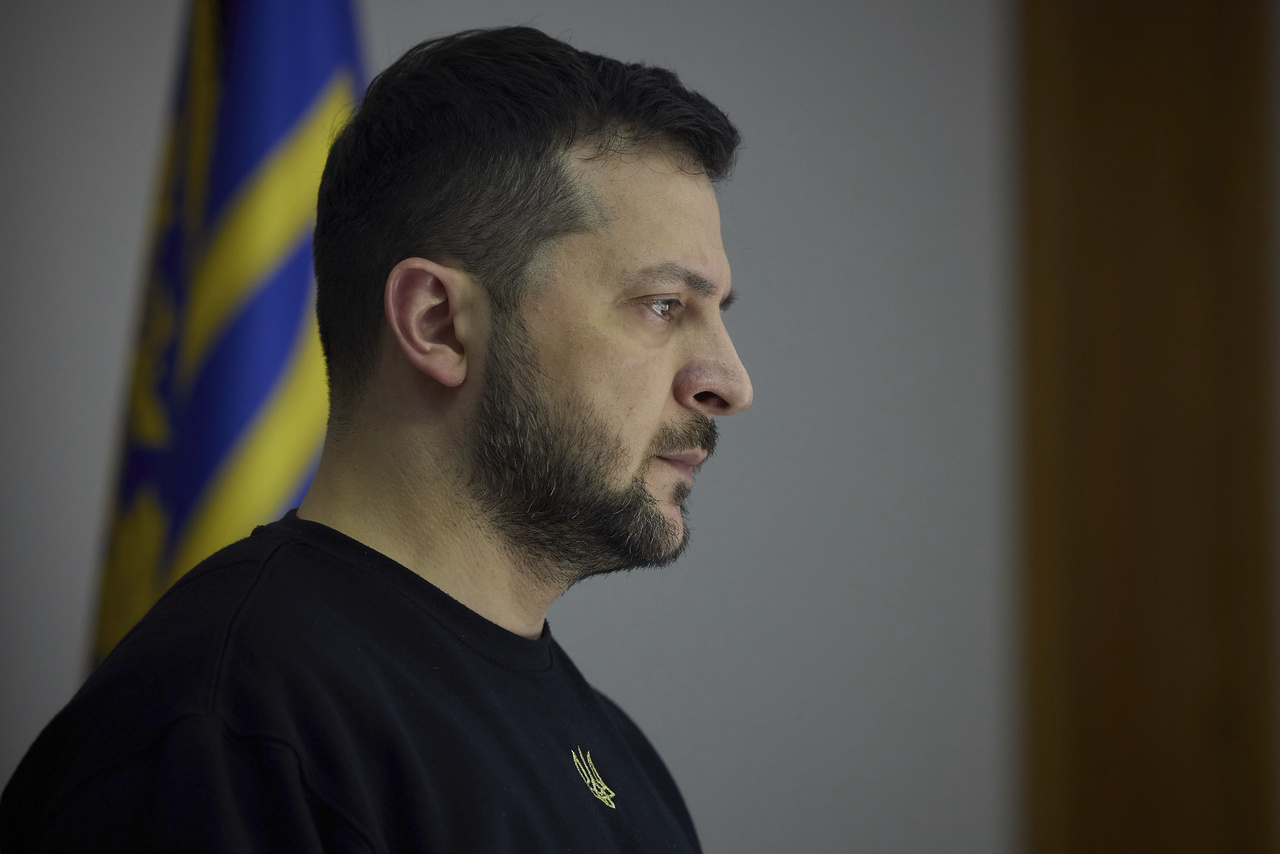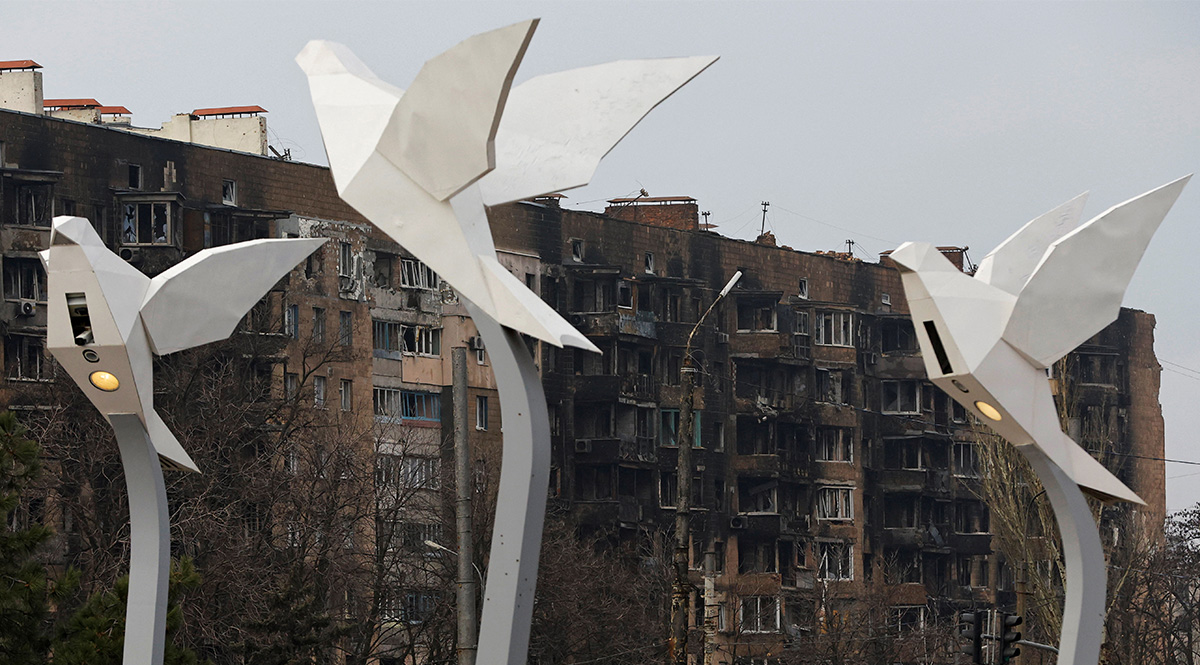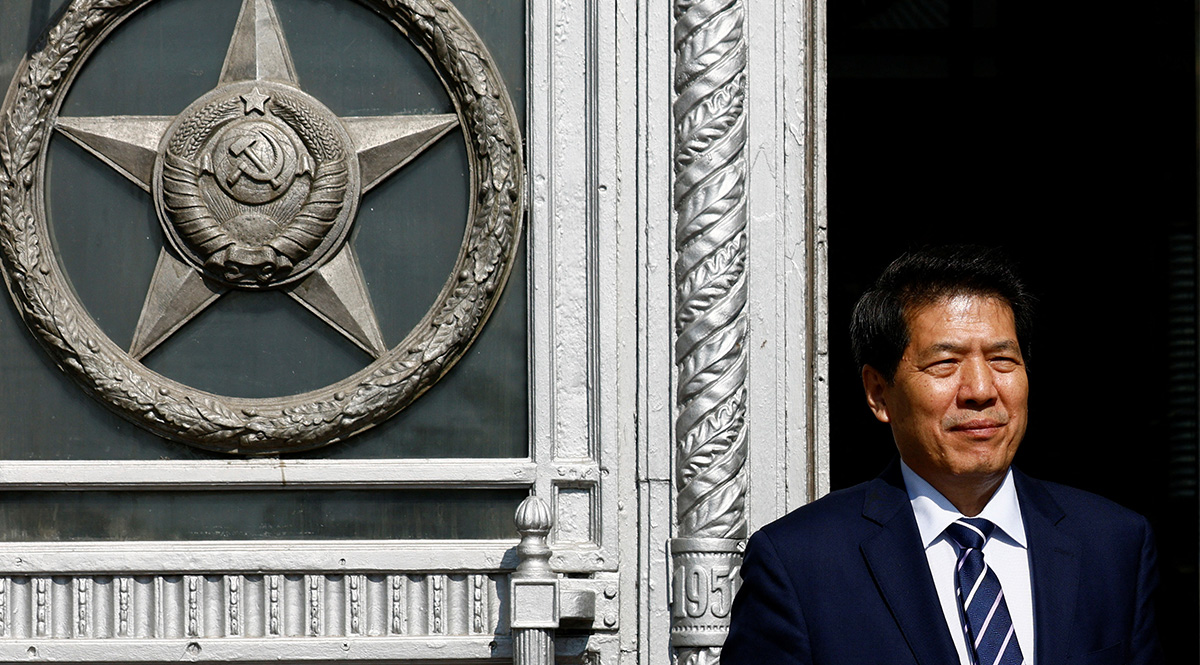Ukraine's Summit Paves Way for Much Discussion but Little Peace Yet
The Summit on Peace in Ukraine, convened on 15-16 June in Switzerland, brought together almost 100 countries from around the world, but it will not produce a quick resolution of the Russian aggression against Ukraine. The key factor determining the end of the war will be the military situation on the frontline where, despite a series of setbacks, Russian troops still hold the initiative. Nonetheless, the conference was an important step for Ukraine in laying the foundations for potential future peace talks.
.png) Denis Balibouse / Reuters / Forum
Denis Balibouse / Reuters / Forum
The Swiss Peace Summit
The talks were consultative in nature and intended to build further support for the Ukrainian vision of ending the war with Russia. Since autumn 2022, the Ukrainian government has been promoting at international forums a 10-point plan for the diplomatic settlement of the conflict, which assumes the withdrawal of Russian troops from Ukrainian territory, holding Russia accountable for damages and war crimes, concluding a formal agreement to end the war, and extending international security guarantees to Ukraine. The implementation of this plan will not be possible unless Russian troops suffer a decisive defeat on the frontline. Nevertheless, Ukraine has already used the plan to seize the diplomatic initiative to persuade the international community that the war should end with the restoration of its full territorial integrity within the internationally recognised borders. By doing so, the Ukrainian authorities are simultaneously trying to put aside alternative proposals for settling the conflict, especially Russian and Chinese ones that do not envisage the withdrawal of the Russian troops from Ukrainian territory.
Notwithstanding the presence of 92 state delegations from around the world at the summit, Ukraine failed to achieve its original objective of securing the approval of world leaders for the Ukrainian plan so that it could then be presented to the Russian side. This lack of approval meant Ukraine has been forced to curtail its ambitions. As a result, the consultations covered only three secondary points of the plan—nuclear and food security, and the exchange of prisoners of war, while none of the key political points was subject to discussion. Despite reassurances of support for Ukraine from foreign partners, the controversial issue for many of them remains Ukraine’s desire to regain all of its territory and hold Russia accountable for the aggression. Even though Ukraine managed to successfully push through a reference to the territorial integrity of the state in the summit’s final communiqué, several delegations, including India, South Africa, and Saudi Arabia, refused in the end to sign it.
The Russian Position
Russia’s leadership, which was not invited to the summit, has as expected rejected the Ukrainian peace plan. It demands international recognition of Russian territorial gains in Ukraine after 2014 and Ukraine’s voluntary cession to Russia of territory in the south of the country that the Russian army has never occupied, yet which Russia nevertheless constitutionally recognised as its own territory in autumn 2022. Contrary to recent declarations of willingness to negotiate with Ukraine, the Russian authorities are not interested in compromise and are still pursuing the maximalist goals set back at the beginning of the invasion—the subjugation of the Ukrainian state and regime change in Kyiv. The Russian rhetoric about alleged openness to peace talks is targeted at reducing foreign aid to Ukraine, which would give Russia time to rebuild offensive capabilities and consolidate control over the occupied territories.
The Russian leadership’s reference to the Ukrainian-Russian talks in Istanbul in spring 2022 as the starting conditions for potential negotiations is intended to create the illusion of a constructive Russian stance. In reality, it reflects Russia’s continued efforts to impose capitulation on Ukraine through negotiations, in view of the failure of military action. The Russian position from Istanbul implied the de facto transformation of the Ukrainian state into a Russian protectorate by sanctioning the Russian military presence on Ukrainian territory, the immediate cessation of foreign military aid to Ukraine and its far-reaching disarmament, and making the future provision of assistance to Ukraine in the event of aggression conditional on Russian consent. Unable to force these conditions on Ukraine in the short term, the Russian government is pursuing them gradually, prioritising the consolidation of territorial gains and the demilitarisation of Ukraine.
Moving Towards Peace Talks
Most notably absent the Swiss summit was China, which until recently was seen by the Ukrainian authorities as capable of influencing the Russian position and, at least indirectly, pushing Russia for bargaining with Ukraine. In late May, China together with Brazil presented their own public position on the war, calling for a ceasefire and an international peace conference involving Ukraine and Russia to discuss all plans for settling the conflict, including alternatives to Ukraine’s. The Chinese authorities claim that their position is supported by almost 50 countries. However, Ukraine immediately rejected China’s proposal and accused it of pressuring non-European countries not to attend the summit in Switzerland. Although the Sino-Brazilian stance partly coincides with the Ukrainian peace plan (exchange of prisoners of war, banning the use of nuclear weapons, food security), in fact its essence lies in effectively freezing the conflict in its current territorial form.
Ukraine does not currently recognise the possibility of bilateral peace talks with Russia. The prospect of direct negotiations with Vladimir Putin has actually been legally ruled out by a decision of Ukraine’s National Security and Defence Council since autumn 2022, when Russia illegally annexed four Ukrainian regions. Recently, however, the Ukrainian authorities have signalled their willingness to engage in future multilateral talks with Russia, while indicating that Ukrainian territorial concessions must not become their subject. The Ukrainian plan foresees Russia’s participation in a future international peace summit during which a multilateral agreement to end the war would be signed, following the prior withdrawal of Russian troops from Ukrainian territory. Interestingly, Ukrainian President Volodymyr Zelensky stated in an interview that the negotiations of the so-called 2022 grain deal—when Turkey and the UN, acting as intermediaries, held parallel, separate talks with Ukraine and Russia—could also serve as the model for peace negotiations.
Perspectives
From the Ukrainian point of view, the summit in Switzerland consolidated the international coalition of countries supporting Ukraine in its efforts to reclaim its full territory and set the groundwork for potential peace talks with Russia in a multilateral format. The international community, though, has little ability to force Russia to withdraw its troops from Ukrainian territory, especially as they still hold the initiative on the frontline. For this reason, an alternative coalition is likely to emerge around the China-Brazil tandem, which will recognise territorial concessions from Ukraine as a necessary part of a future compromise with Russia. To this end, it is possible that China will attempt to organise a rival peace summit with Russia and excluding Ukraine.
Both Ukraine and Russia are forming international coalitions around each other with an eye on the upcoming U.S. presidential elections. The appointment of a new administration early next year could give a push to Ukrainian-Russian talks, especially in the event of a victory by Donald Trump, who intends to force both sides to start negotiations through political and economic pressure. At present, however, a lasting agreement between Ukraine and Russia is not possible due to the fundamental divergence of the two sides’ positions. For Ukraine, the restoration of full territorial integrity is the basis for the settlement of the conflict, while the Russian government is demanding recognition of the territorial gains it claims as its own. Given the uncertainty of future military support for Ukraine from its partners, the most likely scenario for the situation to develop now is a gradual de facto freezing of the conflict, without a formal settlement.
There is a growing appetite on both the Ukrainian and Russian sides for a temporary ceasefire. However, both sides intend to use the summer period to strengthen their negotiating position through successes on the frontline. In this case, the Russian authorities could be invited to the next peace summit, which could take place later this autumn. Ukrainian suggestions of using the grain deal model for negotiations with Russia imply that Ukraine will look to lay responsibility on the widest possible range of foreign partners for Russia’s honouring of such arrangements. From Poland’s perspective, it will be crucial that any potential ceasefire is not used by Ukraine’s partners as a reason to reduce military aid to it.





